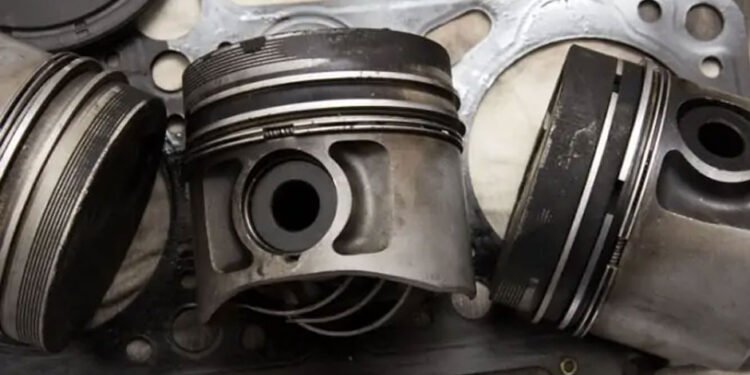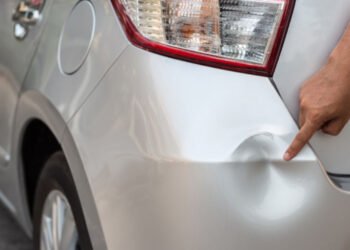Driving with damaged piston rings is a serious automobile issue that needs to be addressed right away. In order to maintain appropriate compression, prevent oil from seeping into the combustion chamber, and reduce fuel consumption, piston rings are essential. Numerous negative outcomes may happen if these rings are damaged or worn. So, can you drive with bad piston rings?
Consequences of these rings wearing out include lower engine performance, excessive oil consumption, and possibly irreparable harm to the engine’s internals. All of them carry the risk of disastrous failure and pricey repairs.
In this article, we’ll look at the warning signs and the dangers of driving in such circumstances. Let’s get going!
Signs Of Piston Rings Issues
Early detection and quick repair of piston ring problems depend on the ability to recognize their symptoms. Here are some typical warning signs that the piston rings in your car may need to be replaced:
Significant Exhaust Smoke
Your car may be emitting excessive amounts of smoke if the piston rings are to blame. Piston ring failure is evident by the presence of thick, dark gray smoke with hints of blue colors. Along with the smoke, you might also detect a scent that is like burning oil.
The combustion chamber of your car will experience an engine oil leak when the piston rings deteriorate. This explains the odor of burning oil and the dense, gray smoke or exhaust that emanates from your car.
Excessive Oil Consumption
Oil consumption is controlled by the piston, therefore if the rings are worn out and damaged, oil will leak into the combustion chamber. Consequently, your car takes considerably more oil than usual.
You will therefore need to add oil more frequently than every 3000 to 5000 miles as is customary. Therefore, it is time to get the piston rings examined by a professional if you need to keep adding extra oil.
Aspects Of Acceleration
Your car may have worn out or damaged piston rings if it has trouble accelerating. This causes the compression to decrease, which is why the engine isn’t as powerful as it once was.
You might have noticed that even when you press the gas pedal, your car doesn’t accelerate right away. You need to remedy this problem by performing a more comprehensive examination of the piston rings.
Poor Performance
As the piston rings deteriorate, your car will generally lose strength and performance quality. It’s possible that you’ll run out of power entirely and run into acceleration issues. Due to the fact that further harm to your car will result from not having the piston rings checked straight away, this is why you should.
How Long Can I Drive With Bad Piston Rings?
According to The Auto Insider, It is not advisable to drive with damaged piston rings, and this should be avoided at all costs. The severity of the problem and the general health of your engine will determine how long you can keep driving with damaged piston rings. While it is possible to drive for a short distance with damaged piston rings, it is advisable to avoid doing so as it could further harm your engine and car.
Understanding that driving with damaged piston rings can have major repercussions and possibly result in further engine damage over time is crucial.
Can You Drive With Bad Piston Rings?
Driving with damaged piston rings might have serious and long-lasting repercussions. It may have an effect on both your wallet and the performance of your car. The following negative effects may result from ignoring or putting off piston ring problems:
Engine Damage
The combustion chamber might become oily due to faulty piston rings. This results in insufficient lubrication and inefficient combustion. Inadequate lubrication can result in excessive friction, overheating, and quicker engine component wear. The cylinders, pistons, and connecting rods may suffer damage as a result, but it won’t be permanent.
Reduced Engine Performance
Engine compression falls as the piston rings lose their capacity to seal, which reduces power and performance. You can feel sluggish when driving, with diminished acceleration, poor throttle response, and other issues.
Increased Oil Consumption
Worn-out piston rings are unable to keep oil out of the combustion chamber, resulting in oil being consumed alongside the gasoline. Increased maintenance costs are the outcome, as also higher oil consumption and the requirement for regular oil top-ups.
Poor Fuel Efficiency
Incomplete combustion and decreased engine efficiency are the results of the piston rings’ deteriorated compression. The gasoline usage of your car consequently rises, increasing your fuel costs.
Excessive Exhaust Emissions
The combustion chamber produces too much smoke and hazardous pollutants when burning oil. This increases air pollution and raises the possibility that your car will fail emissions tests.
Noise
Engine knocking or pinging noises can be caused by insufficient compression and are signs that the engine is not operating at its best. Ignoring the problem may make it worse and result in more serious engine damage.
Catalytic Converter Damage
Increased oil consumption and excessive exhaust emissions can harm the catalytic converter, a critical component of emissions control. Replacing a faulty catalytic converter can be costly.
Risk of Engine Failure
Driving with faulty piston rings puts enormous strain on the engine, raising the danger of total engine failure. This could leave you stranded and necessitate significant and expensive repairs.
Safety Issues
A vehicle with less power and poor engine performance may endanger you and other road users.
How To Fix Bad Piston Rings Temporarily?
You can take some effort to lessen the immediate consequences. Remember that these procedures are not a replacement for proper repairs, and you should have the problem repaired as soon as feasible. Here are a few workarounds:
Use Thicker Oil
Changing to a slightly thicker grade of engine oil will assist reduce oil consumption and temporarily increase compression. Keep in mind that this is not a long-term solution. Before changing the oil in your vehicle, consult the owner’s manual or a professional.
Add Oil Additives
Some oil additives promise to increase piston ring sealing and decrease oil consumption. While they may provide immediate comfort, their effectiveness varies and they are not a long-term solution.
Frequent Oil Checks and Top-Ups
Keep an eye on your oil level and top it off on a regular basis to ensure your engine has adequate lubrication. This can assist prevent excessive wear caused by a lack of lubrication.
Avoid High RPM and Heavy Loads
As much as possible, avoid aggressive driving, excessive revving, and carrying large weights. This can reduce engine strain and prevent future damage.
Perform Regular Maintenance
Keep up with routine maintenance on your vehicle, such as changing the air filter and spark plugs. It can ensure that, given the current state of the engine, it runs as effectively as possible.
Final Thoughts
To summarize, driving with faulty piston rings is not only harmful to the health of your car but also potentially dangerous. If you see any indicators of piston ring difficulties, you should have your car evaluated and serviced as soon as possible. Timely maintenance and treating piston ring concerns will help extend the life of your car. It will also save you from more significant and costly repairs in the future.












